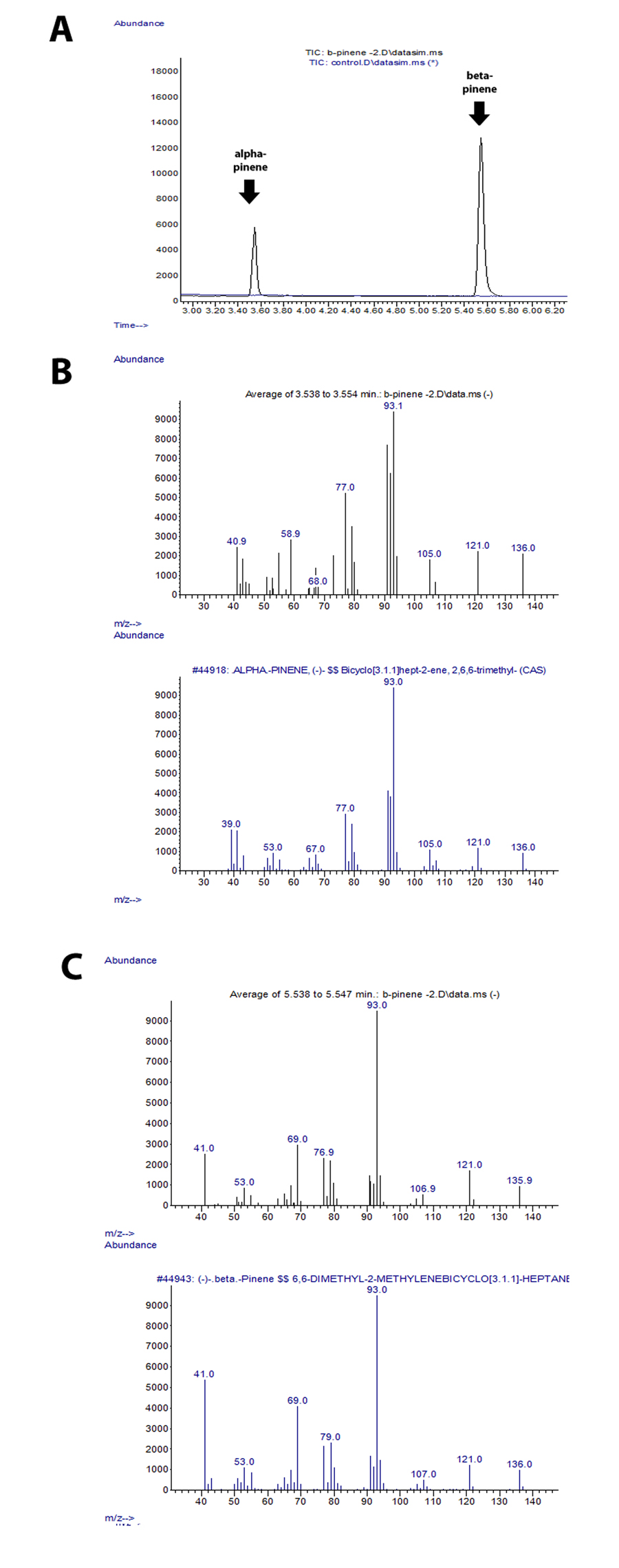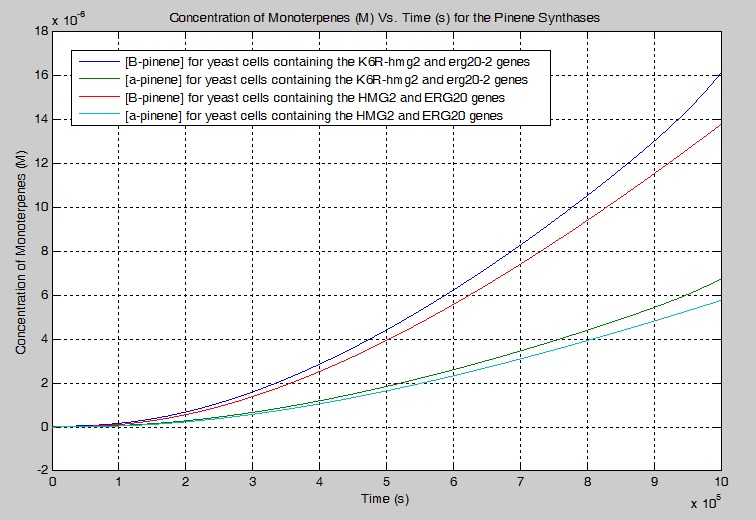Team:British Columbia/Accomplishments
From 2011.igem.org
(Difference between revisions)
| Line 22: | Line 22: | ||
<font size="3"><h3>2. Diterpene production in yeast</h3></font> | <font size="3"><h3>2. Diterpene production in yeast</h3></font> | ||
| - | <h3>3. Mountain Pine Beetle & Yeast Co-culture </h3> | + | <b></b> |
| + | <font size="3"><h3>3. Mountain Pine Beetle & Yeast Co-culture</h3></font> | ||
| + | |||
| + | To prove that release methods by incubation of Mountain Pine Beetles | ||
| + | <b></b> | ||
| + | <font size="3"><h3>3. Blue Stain Fungi & Yeast Co-culture Co-culture</h3></font> | ||
| - | |||
<html><h2 style="margin:8px;font-weight:bold">Modeling Achievements</h1></html> | <html><h2 style="margin:8px;font-weight:bold">Modeling Achievements</h1></html> | ||
Revision as of 02:30, 28 October 2011

Contents |
Wet Laboratory Achievements
1. In vitro assay production of monoterpene in bacteria
Geranyl Pyrophosphate (GPP) Assay
Alpha-pinene and Beta-pinene synthases were purified using His SpinTrap Ni-affinity columns and were assayed in vitro with GPP. Using gas chromatography-mass spectrometry (GCMS), we confirmed the synthesis of alpha and beta pinene monoterpenes from our enzyme assays.
2. Diterpene production in yeast
3. Mountain Pine Beetle & Yeast Co-culture
To prove that release methods by incubation of Mountain Pine Beetles
3. Blue Stain Fungi & Yeast Co-culture Co-culture
Modeling Achievements
Monoterpene Production
We simulated the expansion of the MPB population from year 2011 to 2020 using the estimates obtained from the clustering analysis. For cost estimation and prediction of emergence of subpopulations, refer to our Model Methodology above.
Monoterpene Production
We simulated the expansion of the MPB population from year 2011 to 2020 using the estimates obtained from the clustering analysis. For cost estimation and prediction of emergence of subpopulations, refer to our Model Methodology above.
 "
"

